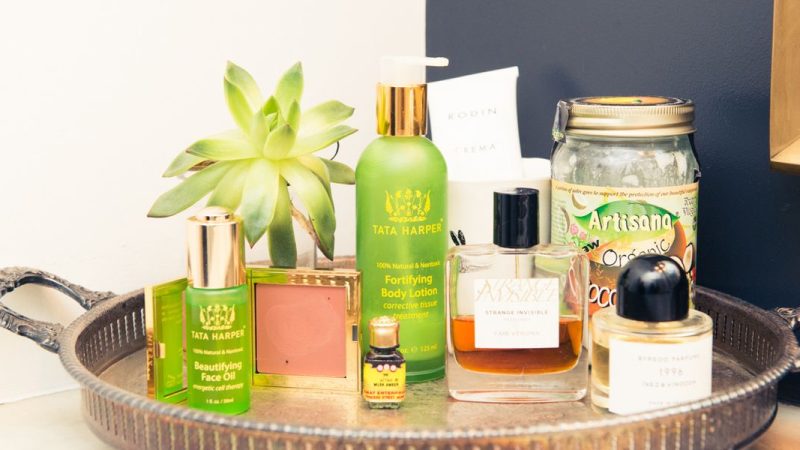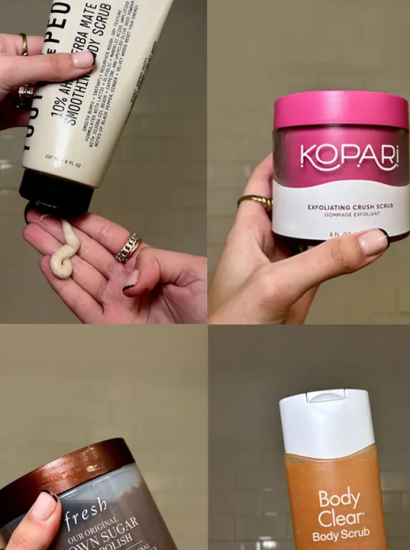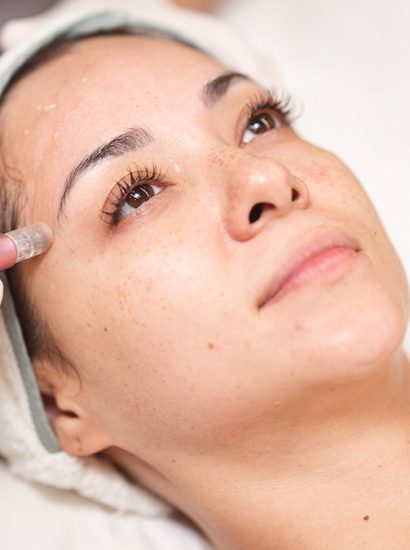The beauty industry is evolving, and with it, consumers are becoming more conscious of the products they use. With an increasing number of people opting for vegan lifestyles, vegan face care has emerged as a vital component of this shift. Vegan face care not only promotes healthier skin but also aligns with ethical considerations by ensuring that no animal-derived ingredients or animal testing are involved. In this guide, we will delve into everything you need to know about vegan face care, from its benefits to how to create your personalized routine.
What Is Vegan Face Care?
Vegan face care refers to skincare products formulated without any animal-derived ingredients, such as beeswax, lanolin, and collagen. Additionally, vegan skincare brands do not engage in animal testing, ensuring that their products are cruelty-free. This category encompasses a wide range of products, including cleansers, toners, moisturizers, serums, and masks, all made from plant-based ingredients.
Vegan Face Care: The Importance of Cruelty-Free Beauty
Cruelty-free beauty is essential for ethical and moral reasons. Many consumers are concerned about the welfare of animals and the potential harm caused during the testing process. By choosing cruelty-free products, you are supporting brands that prioritize humane practices. Furthermore, cruelty-free products are often more environmentally sustainable, as they avoid harmful chemicals that can impact wildlife and ecosystems.
Benefits of Vegan Face Care
Opting for vegan face care comes with numerous benefits:
A. Healthier Ingredients
Vegan skincare products are typically formulated with natural, plant-based ingredients that are less likely to cause irritation or allergic reactions. These products often contain nourishing botanicals, antioxidants, and essential fatty acids that promote healthy skin.
B. Environmental Impact
Vegan skincare products tend to have a lower environmental impact since they do not rely on animal agriculture, which contributes to deforestation, water pollution, and greenhouse gas emissions. By choosing vegan options, you are contributing to a more sustainable beauty industry.
C. Ethical Considerations
Choosing vegan face care means you are making a conscious decision to support brands that do not harm animals for profit. This ethical stance resonates with many consumers who prioritize kindness and compassion in their purchasing decisions.
Key Ingredients in Vegan Face Care
Vegan face care products can be rich in nourishing ingredients that provide various benefits. Here are some essential ingredients commonly found in vegan skincare:
A. Plant Oils
- Jojoba Oil: Closely resembles the skin’s natural sebum, making it an excellent moisturizer.
- Argan Oil: Rich in vitamin E and essential fatty acids, it nourishes and hydrates the skin.
B. Natural Extracts
- Aloe Vera: Known for its soothing and hydrating properties, aloe vera is great for all skin types.
- Green Tea: Packed with antioxidants, green tea helps protect the skin from environmental stressors.
C. Plant-Based Acids
- Hyaluronic Acid: A naturally occurring substance that retains moisture in the skin, giving it a plump appearance.
- Glycolic Acid: Derived from sugar cane, this alpha hydroxy acid exfoliates the skin, promoting cell turnover.
Common Myths About Vegan Face Care
Despite the growing popularity of vegan skincare, several misconceptions persist. Let’s debunk some common myths:
A. Myth: Vegan Products Don’t Work
Reality: Vegan skincare products can be just as effective as traditional ones. Many vegan brands invest in research and development to create high-quality formulations that deliver results.
B. Myth: Vegan Products Are Expensive
Reality: While some vegan brands can be pricey, many affordable options are available. A wide range of budget-friendly vegan skincare products are accessible in drugstores and online.
C. Myth: Vegan Products Are Not Safe for Sensitive Skin
Reality: Many vegan skincare products are formulated with gentle, natural ingredients, making them suitable for sensitive skin. Always check for hypoallergenic labels and conduct patch tests if you have concerns.
Creating Your Vegan Face Care Routine
Building an effective vegan face care routine is essential for maintaining healthy skin. Here’s a simple guide to help you get started:
A. Step 1: Cleansing
Choose a vegan cleanser that suits your skin type. Gel cleansers are great for oily skin, while cream or oil-based cleansers work well for dry skin. Cleanse your face twice daily to remove dirt and impurities.
B. Step 2: Toning
Use a vegan toner to balance your skin’s pH and remove any remaining impurities. Look for toners with soothing ingredients like rose water or chamomile.
C. Step 3: Serums
Incorporate a vegan serum with active ingredients like vitamin C for brightening or hyaluronic acid for hydration. Serums are concentrated treatments that can target specific skin concerns.
D. Step 4: Moisturizing
Choose a vegan moisturizer that provides adequate hydration for your skin type. Lightweight gels work well for oily skin, while rich creams are ideal for dry skin.
E. Step 5: Sun Protection
Always apply a vegan sunscreen during the day to protect your skin from harmful UV rays. Look for broad-spectrum protection with at least SPF 30.
Vegan Face Care for Different Skin Types
A. Oily Skin
Opt for lightweight, oil-free vegan products that contain salicylic acid or tea tree oil to control excess oil and prevent breakouts.
B. Dry Skin
Choose rich moisturizers and hydrating serums with ingredients like hyaluronic acid and ceramides to lock in moisture and soothe dryness.
C. Sensitive Skin
Look for gentle vegan products with calming ingredients such as aloe vera, chamomile, or calendula to minimize irritation.
D. Combination Skin
Use a combination of products tailored to each area of your face. Lightweight gels can hydrate oily areas, while richer creams can nourish dry spots.
Popular Vegan Face Care Brands to Try
Several brands offer exceptional vegan face care products. Here are some notable ones to consider:
A. 100% Pure
Known for its fruit-pigmented makeup and skincare, 100% Pure uses natural ingredients to create effective products.
B. Herbivore Botanicals
This brand focuses on sustainable, plant-based formulations that cater to various skin types and concerns.
C. Pacifica Beauty
Offering a wide range of affordable vegan skincare, Pacifica is committed to using ethically sourced ingredients.
D. Youth to the People
This brand incorporates superfoods into its formulations, ensuring that your skin receives the nutrients it needs.
E. Tarte Cosmetics
While known for its makeup, Tarte offers a selection of vegan skincare products that are both effective and cruelty-free.
Tips for Transitioning to Vegan Face Care
Transitioning to vegan face care can be simple and rewarding. Here are some tips to make the switch easier:
A. Read Labels Carefully
Always check the ingredient list to ensure a product is vegan and cruelty-free. Look for certifications from organizations like Leaping Bunny or PETA.
B. Start Slow
Begin by replacing a few of your existing products with vegan alternatives. As you become more comfortable, gradually transition the rest of your skincare routine.
C. Research Brands
Take the time to research brands and their practices. Support those that align with your values and have a commitment to sustainability and ethics.
D. Test Products
Before fully committing to a new product, do a patch test to ensure it suits your skin and doesn’t cause any irritation.
The Future of Vegan Face Care
As consumers become more aware of the benefits of vegan and cruelty-free products, the demand for vegan face care continues to grow. Many brands are reformulating their products to align with these values, contributing to a more compassionate and sustainable beauty industry. This shift is not just a trend; it’s a movement toward a healthier planet and a more ethical approach to beauty.
Conclusion
Vegan face care is not just a trend; it’s a lifestyle choice that promotes health, ethics, and sustainability. By choosing vegan skincare products, you are not only nurturing your skin but also supporting practices that are kinder to animals and the environment. With the right knowledge and resources, anyone can transition to a vegan face care routine that enhances their natural beauty. Start exploring the world of vegan skincare today, and discover how it can transform your beauty regimen.
FAQs
1. Are all vegan products cruelty-free?
Not all vegan products are necessarily cruelty-free, but all cruelty-free products are vegan. Always check for certification labels to ensure a product meets both criteria.
2. Can vegan skincare help with acne?
Yes! Many vegan skincare products contain beneficial ingredients like tea tree oil, salicylic acid, and aloe vera that can help control acne and soothe the skin.
3. Is vegan skincare suitable for all skin types?
Yes, vegan skincare can be formulated for various skin types, including oily, dry, sensitive, and combination skin. It’s essential to choose products tailored to your specific needs.
4. How can I tell if a product is vegan?
Look for labels or certifications indicating that the product is vegan and cruelty-free. Additionally, check the ingredient list for any animal-derived components.
5. Can I make my own vegan face care products at home?
Absolutely! Many simple vegan face care products can be made at home using natural ingredients. Just ensure you research recipes and follow safety guidelines.
Also read: Skincare for Teens: 10 MustHave Products for Every Routine





